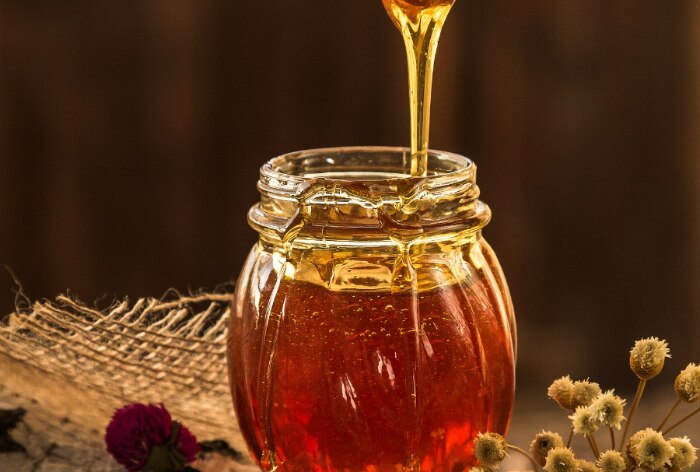Home Business: Is Your Honey Pure or Adulterated?
Lab Test Reveals Key Details About Popular Honey Brands
High levels of adulteration were discovered in popular honey brands in India, according to the findings of a recent lab test. Honey is an essential ingredient found in almost every Indian household. It offers numerous health benefits and comes in various types with different flavors, distinct tastes, and unique properties, depending on the floral source of the nectar. Many diabetic patients use honey as a sugar alternative. However, a report by Zee News has found that prominent honey brands failed key purity tests.
Zee News conducted research to uncover the truth about the purity of Indian honey brands. Three samples from two different honey brands, including Dabur Honey, were collected anonymously and sent to the Gujarat-based National Dairy Development Board’s Centre for Analysis and Learning in Livestock and Food for testing.
The lab test results revealed that all three samples of Dabur Honey and Shree Ji Honey failed the purity test. The samples had a significantly higher content of a compound called HMF (hydroxymethylfurfural) than the established standards. For instance, one sample of Dabur honey had 176.57 mg of HMF, well above the maximum limit of 80 mg set by the Food Safety and Standards Authority of India. Another sample of Dabur honey contained 97.250 mg of HMF, while a sample from Shree Ji Honey had 135.16 mg of HMF.
This is not the first time such adulteration has been highlighted. In 2020, an investigation by the Centre for Science and Environment (CSE) found widespread adulteration in honey sold by major Indian brands, including Dabur. The study revealed that 77% of the honey samples tested contained added sugar syrup, with only three passing the internationally accepted Nuclear Magnetic Resonance Spectroscopy (NMR) test.
Hydroxymethylfurfural (HMF), the compound found in high levels in adulterated honey, is derived from the dehydration of certain sugars. It serves as a marker for honey purity, and a pure honey should contain no more than 15 mg of HMF per kg. Studies have shown that consuming high levels of HMF can have negative health effects, including cytotoxicity, mutagenicity, chromosomal aberrations, and carcinogenicity.
To ensure you are purchasing pure and unadulterated honey, it is important to be aware of these lab test findings and choose reputable brands that prioritize quality and transparency.

